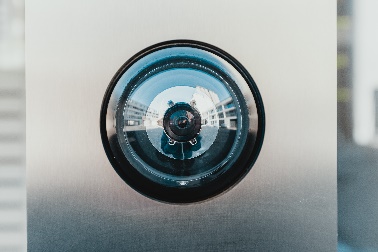Dutch campground owners are increasingly installing cameras with facial recognition technology on their property. In this way, they want to ensure that only guests have access to the swimming pool and other facilities. Privacy experts believe that campsites are going way too far with this measure. According to research by RTL News.

Vacation park Julianahoeve in Renesse is one of the campsites deploying facial recognition technology. It works as follows. Camping guests create a profile via an app where they upload a photo of themselves. At the pool there is a pole where they show the photo. If it is recognized, the door to the pool opens and guests can relax here.
Campground owner Sandy Troost says she started using facial recognition to keep people who are not staying at the campground out of the pool. "We really do want to make sure that we don't overload the pool, or have people from outside coming to swim so that you don't have room for your own guests. That's why it's very important to have good access control," she justifies the decision to use cameras with facial recognition.
Asked if a wristband wasn't enough for this, Troost replied that they could be passed around. "We really want to know who is in that pool. So for that, we had to go for a personalized item."
Guests spoken to by RTL News are positive about the initiative. Privacy experts, on the other hand, warn of the implications for our privacy and security. The Autoriteit Persoonsgegevens states that the use of cameras with facial recognition is almost always prohibited.
There are two exceptions where it is allowed: if facial recognition is necessary for security or authentication, and if a company or organization has permission from the people they are filming. "To determine whether you have a necessity, you have to weigh up whether your building, area or system needs to be so well secured that it cannot be done other than by using (only) cameras with facial recognition," the regulator said.
European privacy laws say that facial recognition can only be used if people give their explicit consent. Also, there must be an alternative for people who do not want to use it. Finally, campsites may not keep the biometric data of campers: it must be erased immediately after their departure.
Frederik Zuiderveen Borgesius, professor of digital security at Radboud University, thinks it is undesirable for campsites to use facial recognition on their guests. "It lets people get used to quite far-reaching camera surveillance. What we certainly do not want is that in a few years we will have the situation where there are cameras with facial recognition everywhere in the city and on the streets. Then you can no longer walk the streets in freedom and anonymously."
Jaap-Henk Hoepman, senior lecturer in digital security at Radboud University, fears that the use of facial recognition is becoming increasingly normalized. "If you do it at the campsite, why not also at work or on the train? The question is what its growing use does for the long term. I understand as a campsite that you have to take measures, but I wonder what the added value of this technology is," he said.
Further, opponents point out the dangers of a data breach. If photos and data of vacationers end up in the hands of criminals, they could then be posted on social media or elsewhere on the Internet. Another possibility is that this data could be used for criminal activities, such as phishing or identity fraud.
Comfort says he understands the concerns of privacy experts, but at the same time says technology is catching up with us. "We are all walking down the street, there are cameras everywhere, you are no longer out and about anonymously. We have researched very carefully whether this is safe and we are guaranteed that."

